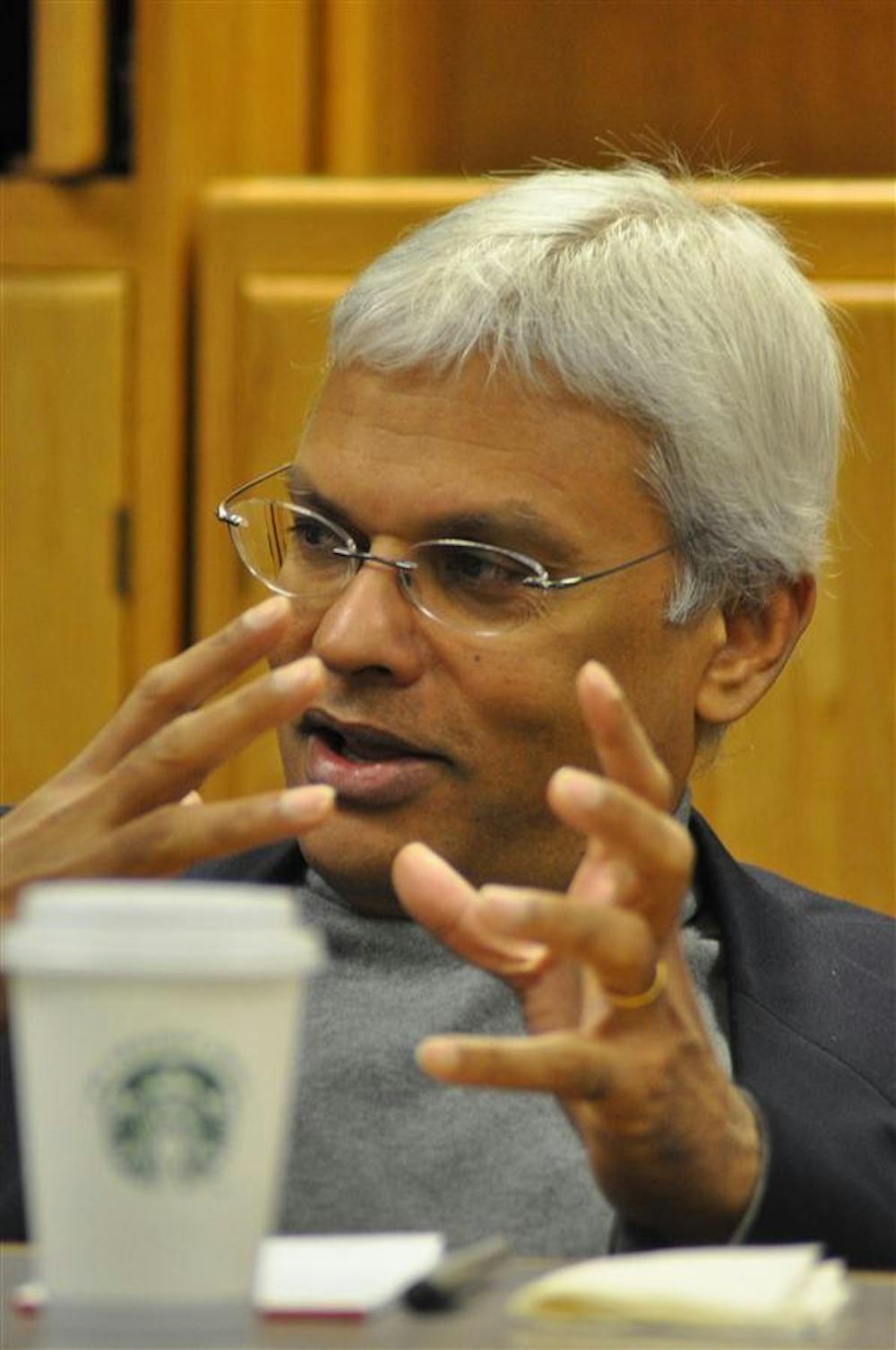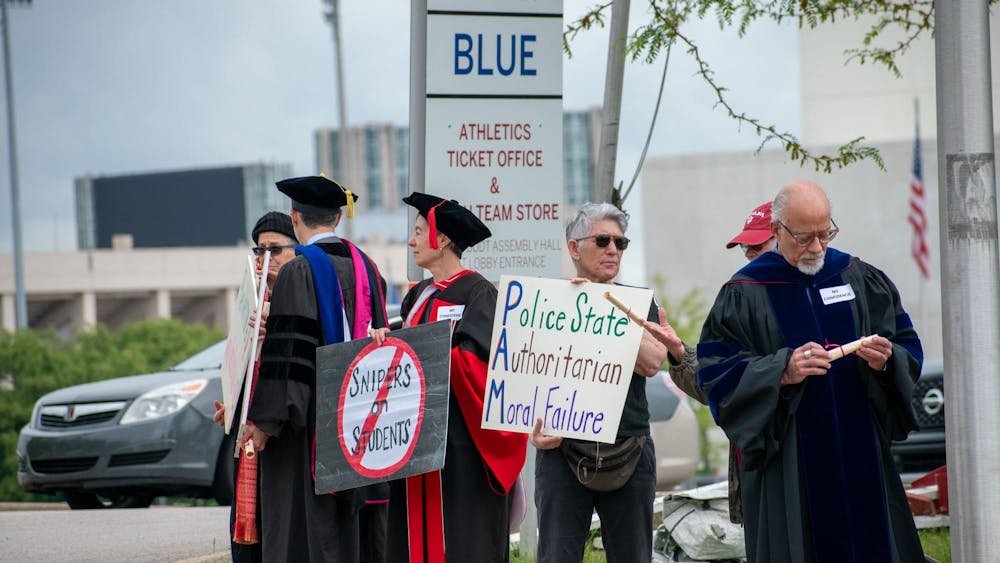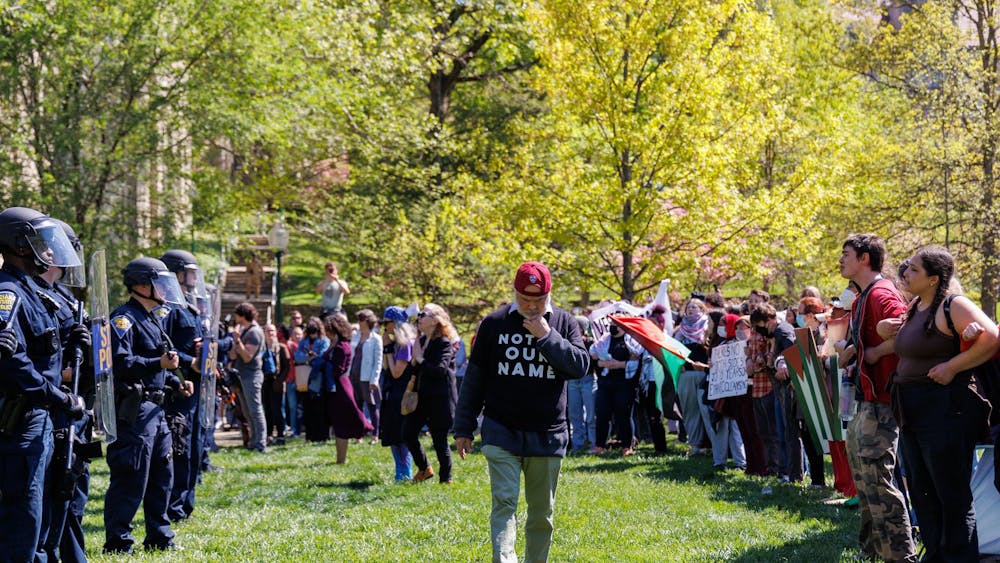The hype of election season has come to an end and along with it the buzz surrounding the issues and debates.
Just ahead lies President Barack Obama’s second term.
Carnegie Endowment for International Peace Senior Associate Ashley Tellis delivered a talk, “The President’s Foreign Policy,” Monday morning discussing the potential direction the United States will take in regard to its foreign policy.
Obama and Republican presidential candidate Mitt Romney debated about foreign policy three weeks ago. Now, the topics discussed are about to play out in the president’s upcoming term.
One of the current obstacles to the development of U.S. foreign policy is the current state of the national economy, Tellis said. He added the national government feels it has the building blocks in place, but recovery has not reached expected levels.
Finding middle ground between the two political parties and developing long-term solutions to help economic and employment growth remains a priority, he said, taking precedence above foreign policy.
“Foreign policy will be optional,” Tellis said. “They will deal with the challenges that they absolutely cannot avoid, but this is not going to be an administration that is looking for a very ambitious foreign policy agenda.”
The president is also committed to the fact the U.S. cannot afford another war right now, thus avoiding flexing its muscular American diplomacy, Tellis said. Given the gravity of the economic situation, the administration wants another decade that allows for rest or relief, holding back the use or threat of force in negotiations.
“It casts a shadow on the kind of diplomacy you can perform, because you will have to settle for some optimum gains, because you do not have the luxury of that last mile that you can secure through the threat of force.” Tellis said.
China, a threat and competitor to the U.S., is also a point of focus in foreign policy, Tellis said. Obama is a realist and sees China as both a strategic and economic challenge.
Matters unrelated to Asia will take second place.
The economy, inability to afford additional military presence abroad as well as the threat of China serve as obstacles for foreign policy to make leaps and bounds, Tellis said.
But there are other relationships and matters at hand.
The threat of Iran and its potential possession of nuclear weapons is a matter the U.S. cannot ignore, he said.
“If this was only an issue between the United States and Iran, there might have been some solutions, but it’s a problem that implicates Israel, as well,” Tellis said.
The Middle East poses additional problems with the presence of about 68,000 remaining American troops in Afghanistan, Tellis said. The question of how many will remain is dependent on the Afghan government’s ability to handle the Taliban and whether or not the troops will be granted full immunity under the Status-of-Forces Agreement.
“There’s a whole series of challenges this administration is going to face, and I haven’t even mentioned the economic issues in Europe,” Tellis said.
The best way to handle all of these issues is for the administration to stay focused at home, he said.
“We don’t have the psychic energy for active shaping efforts,” Tellis said. “And there can always be a wild card that will summon us to some conflict that right now we don’t even know what it is.”
Foreign relations expert talks policy

Get stories like this in your inbox
Subscribe





